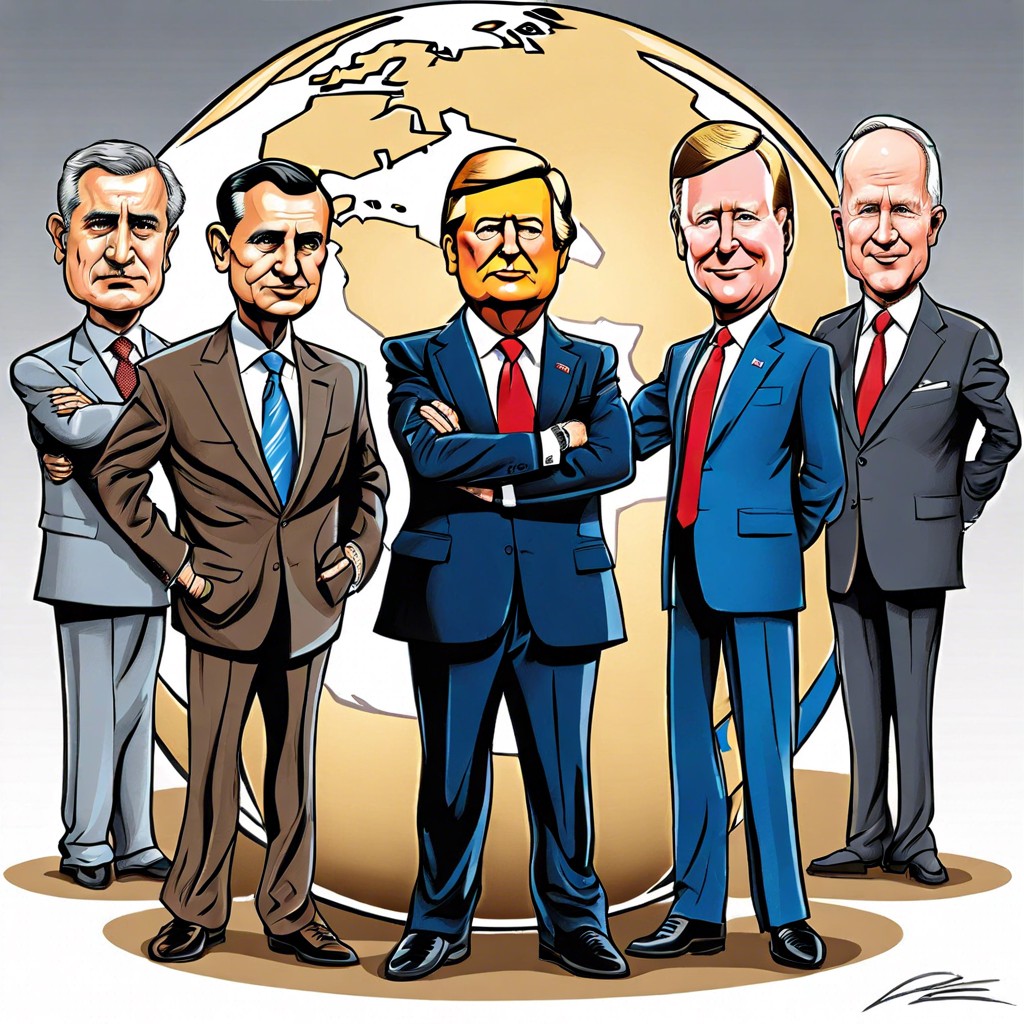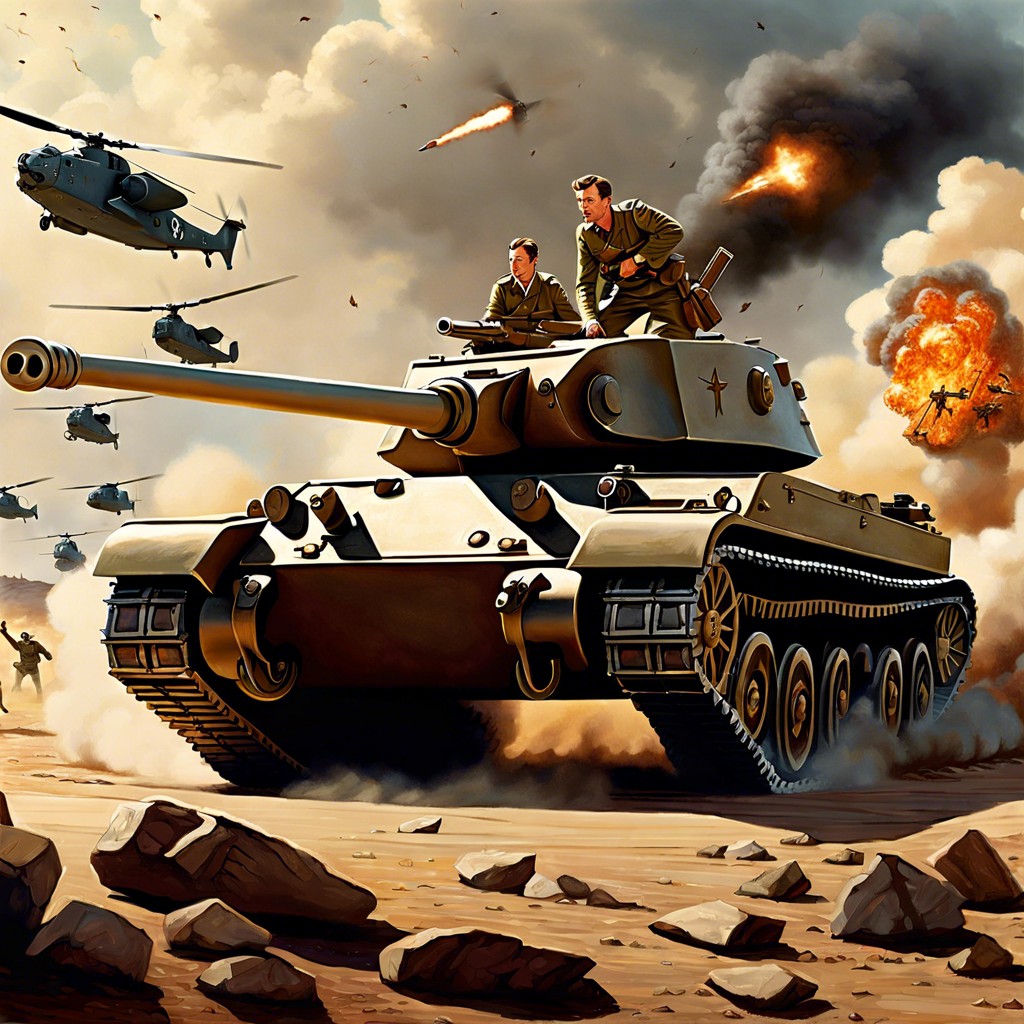Get a straightforward look at possible global impacts and consequences if World War III were to occur.
Imagine a world where nations scramble like contestants on a reality show, armed to the teeth with drones and AI, while economies crumble faster than a Jenga tower. The third “World War” could bring not just epic battles, but a tech-driven chaos reshaping alliances and borders. From economic freefalls to a humanitarian mess, and let’s not forget Mother Earth gasping for breath, we’ve got a wild ride ahead. Strap in, as we uncover the alliances, the tech warfare, the money mayhem, the migrant waves, and the environmental carnage that a global conflict would unleash.
Key takeaways:
- Global alliances shift, old grudges reignite in a power play.
- Tech warfare: drones, AI, cyber chaos redefine battlefield tactics.
- Economic turmoil: trade hurdles, inflation, unemployment, mounting debts.
- Humanitarian crisis: shortages, overwhelmed healthcare, mass migration chaos.
- Environmental disaster: pollution, climate shifts, species extinction loom large.
Potential Global Alliances and Conflicts

Countries wouldn’t just pick sides willy-nilly. Imagine a high-stakes game of dodgeball, but with nukes. Long-standing alliances like NATO and partnerships such as BRICS could mean modern power blocs would quickly form. Expect old friends to stick together but also anticipate a few shocking betrayals.
Consider the complex dance between the U.S. and China. They’re frenemies, flexing military and economic muscles while still needing each other to keep the world economy in balance. And don’t forget wildcard players like North Korea or Iran, who’d relish in the chaos, trying to tip the scales in their favor.
Historical grudges would rear their ugly heads. Think Russia and Ukraine, simmering tensions already bubbling. Smaller nations might get dragged in or pick sides based on sheer necessity. Imagine trying to stay neutral when the global equivalent of your neighborhood bullies are at war.
Regional conflicts would likely explode. The Middle East, a perpetual powder keg, could see intensified clashes. South China Sea disputes might morph into full-blown battleships vs submarines underwater ballet. It’s a chain reaction waiting to happen.
Technological Impact On Warfare
Imagine drones swarming like angry robotic bees. That’s one vision of futuristic combat. Forget boots on the ground; high-tech warfare means remote operations from halfway across the globe. Cyber attacks could take down entire infrastructures faster than you can say “malware.”
Artificial intelligence isn’t just for your smart home anymore. Autonomous weapons and predictive analytics could turn the tide of battle before soldiers even mobilize. Think Terminator, but less Schwarzenegger and more sophisticated algorithms.
And don’t even get started on space warfare. Satellites aren’t just for GPS—think of them as home to celestial laser tag. Add in hypersonic missiles zipping through the atmosphere like out-of-control fireworks, and it’s clear: warfare tech is evolving at warp speed.
So, put down that history book; future battles might look more like sci-fi than soldierly.
Economic Consequences
Let’s talk about the economic fallout, shall we? Picture the global economy as a house of cards. Now imagine a giant gust of wind, courtesy of World War III, blowing those cards into chaos. Yikes, right?
First off, trade routes would look more like obstacle courses. Disruptions could make importing and exporting goods a logistical nightmare. Say goodbye to your favorite imported cheese.
Inflation would be the annoying guest that never leaves. With supply chains in shambles, prices would skyrocket. Forget luxury items—essentials like food and fuel would cost a small fortune.
Next up, let’s not forget unemployment. Factories blown to bits don’t churn out jobs. Plus, companies might close up shop faster than a teenager abandoning their Halloween haunted house gig.
Government spending would focus primarily on military needs, causing social programs to wither. Healthcare, education, those “nice-to-haves” could turn into memories.
And, oh boy, the national debt. Think you’re drowning in student loans? Imagine nations gasping for air under a tidal wave of wartime expenses.
So, hold on to your wallets, folks. The economic landscape post-WWIII would be more treacherous than a game of Monopoly with your overly competitive cousin.
Humanitarian Crisis and Migration
Imagine entire cities on the move. It’s not something out of a sci-fi novel; it’s the grim reality in the aftermath of World War III.
First, food and water scarcity become everyday problems. With supply chains obliterated, people would face starvation and dehydration, leading masses to scavenge for basic necessities.
Second, medical facilities? Overwhelmed. Healthcare systems would buckle under the sheer number of injured and sick. Expect diseases to spread like wildfires, which, come to think of it, might also be spreading due to the bombings.
Governments facing mass displacement would struggle to maintain order. Refugee camps, bursting at the seams, could become semi-permanent homes for millions. Not quite the vacation spot one would choose.
Lastly, social harmony? Poof. With new cultural and ethnic groups suddenly crammed together, tensions flare like a bad rom-com but without the happy ending. Integration challenges and conflicts borne out of desperation would become the norm.
Bit of a messy picture, isn’t it?
Long-term Environmental Damage
Let’s face it, bombing the heck out of the planet isn’t exactly eco-friendly. Picture this: entire cities reduced to rubble, turning once-vibrant landscapes into lifeless wastelands. Nuclear fallout? Not exactly a rejuvenating face mask for Mother Earth.
Pollution would skyrocket. Think about all the burning debris, chemical leaks, and radioactive waste seeping into the soil and water. That’s a one-way ticket to toxic-town for plants, animals, and yes, humans too.
Then there’s the climate. All that soot and dust could block out the sun, giving the weather a full makeover—and not in a good way. Imagine crops failing, leading to famines on a global scale. Suddenly, your backyard veggie garden doesn’t seem so quaint, does it?
Finally, species extinction would hit overdrive like a mad dash in a wildlife horror flick. Habitats destroyed, ecosystems disrupt; animals would vanish faster than snacks at a Super Bowl party. Hooray, another thing for future generations to thank us for!
So, call it collateral damage or call it what it really is: an ecological nightmare.




